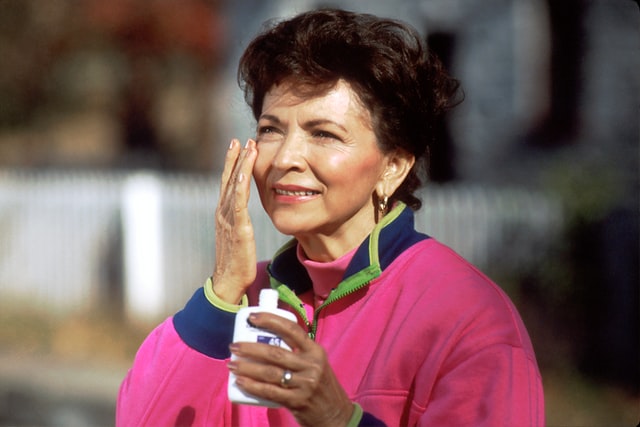The waves are beckoning and the sun is blazing. You go for your trusted sunscreen bottle at the back of the cupboard. When you see the ripped and faded label, you wonder how long you’ve kept it. Several summers? Perhaps a few years? It couldn’t possibly go wrong… can it?
Sunscreen, according to dermatologist Alok Vij, MD, may expire and does so sooner than most people believe if it is not maintained properly.
“The usual shelf life of sunscreen is roughly three years if it’s kept in a cool, dry place,” Dr Vij says. “Keeping the container in a hot or humid environment may rapidly degrade several of the active components that filter UV radiation.”
Sunscreen degrades faster when the temperature, light, and humidity rise. So, that bottle you’ve been driving around in your vehicle all summer, scorching in the sun? It most likely no longer provides the same level of UV protection as it formerly did.
What is the shelf life of sunscreen?
It’s crucial to remember that if you use sunscreen appropriately, it shouldn’t last very long.
“Realistically, if you use sunscreen as suggested, each bottle should last you no more than a couple of months,” Dr Vij explains. “The guideline is to apply a full ounce of sunscreen to all exposed portions of the body, including the arms, legs, back, and chest.”
Sunscreen’s SPF protection helps protect against:
- Early ageing of the skin.
- Skin deterioration.
- Cancer of the skin.
- Sunburns.
- Sunspots.
An ounce is about the size of a shot glass. And, since most sunscreen bottles are roughly 4 ounces in size, you may use the whole bottle in a single day or within a few weeks if you spend a lot of time outdoors.
But what about the end-of-season sales? Most businesses will offer discounted sunscreen to help clear off inventory.
“It might be OK,” Dr Vij says, “but you don’t know how the sunscreen was kept.” “It may have sat in a sweltering warehouse all summer.” The active components may have gone rotten at that time.”
When it comes down to it, it’s normal to replenish sunscreen every summer or, if you use it often, every month. If you don’t spend much time outdoors during the winter, keep it in a cool, dry place.
Some manufacturers publish the expiry date on the label or bottle, while others do not.
Make a note of the date you purchased the sunscreen on the bottle so you can remember when it’s time to replenish it. Remember that sunscreen may keep its full potency for three years if properly preserved.
Does mineral sunscreen have a longer shelf life?
Whether you use mineral or chemical sunscreen, not all of the components will remain stable over time.
Both types of sunscreen include dispersants to help them distribute more evenly on your skin, but these compounds might deteriorate with time, resulting in textural changes or inconsistent efficacy.
Furthermore, if the preservatives in sunscreen fail to function due to breakdown, germs may form in the container, causing rashes and acne.
Titanium and zinc do not normally decay in mineral-based sunscreen, but other stabilisers included in the bottle do. If a mineral-based sunscreen becomes stale, you may detect grittiness or small stones in the formula.
This form of expired sunscreen often does not distribute or rub into your skin.
Chemical-based sunscreen spoils more rapidly, particularly if the bottle is sun-roasted. Avobenzone and octinoxate, two active chemicals used in chemical-based sunscreens, are among the most unstable.
If they get oxidised, you may develop allergic contact dermatitis. This seems to be sunburn, but it is an allergic response caused by light and heat reaching the chemicals and then being smeared on your skin.
Is it okay to use expired sunscreen?
You shouldn’t do it. Expired sunscreen means the product no longer protects you and increases your risk of sunburn, UV damage, and skin cancer.
“If you use expired sunscreen, you’re really just putting on ordinary moisturiser and not receiving any form of UV protection,” Dr Vij explains. “Many individuals believe that wearing sunscreen makes them indestructible. However, if it is outdated or expired, you are more likely to get burned.”
Sunscreen Storage Suggestions
How should you keep sunscreen to provide optimal protection? Here’s what you should do.
- It should be kept in a cold, dry area. This will aid in the preservation of its active components. If a bottle is kept in a hot or humid environment, the chemicals begin to deteriorate and no longer filter UV rays as effectively.
- Maintain cleanliness. Shut the lid after use, and try to minimise the number of times you open and close it. Also, before using, be sure to wash your hands. Bacteria on your hands might travel to the container, reducing the efficacy of the sunscreen.
- Keep out of direct sunlight. Containers should not be stored in direct sunlight. But, while you’re in the pool, make sure you don’t leave the bottle out in the sun’s damaging rays. Put it in the shade or cover it with a towel or blanket.
Overall, it is important to use sunscreen on a regular basis. As a result, you may go through sunscreen more often. However, if you don’t spend much time outdoors, it’s critical to maintain a check expiry date and store any sunscreen bottles in a cool, dry area to keep the active components intact.
“Sunscreen is an essential component of any dermatologist’s regular skin care regimen.” “Sunscreen not only protects against skin cancer, but it also helps prevent the effects of ageing in your skin,” Dr Vij explains. “It’s a win-win situation.”
